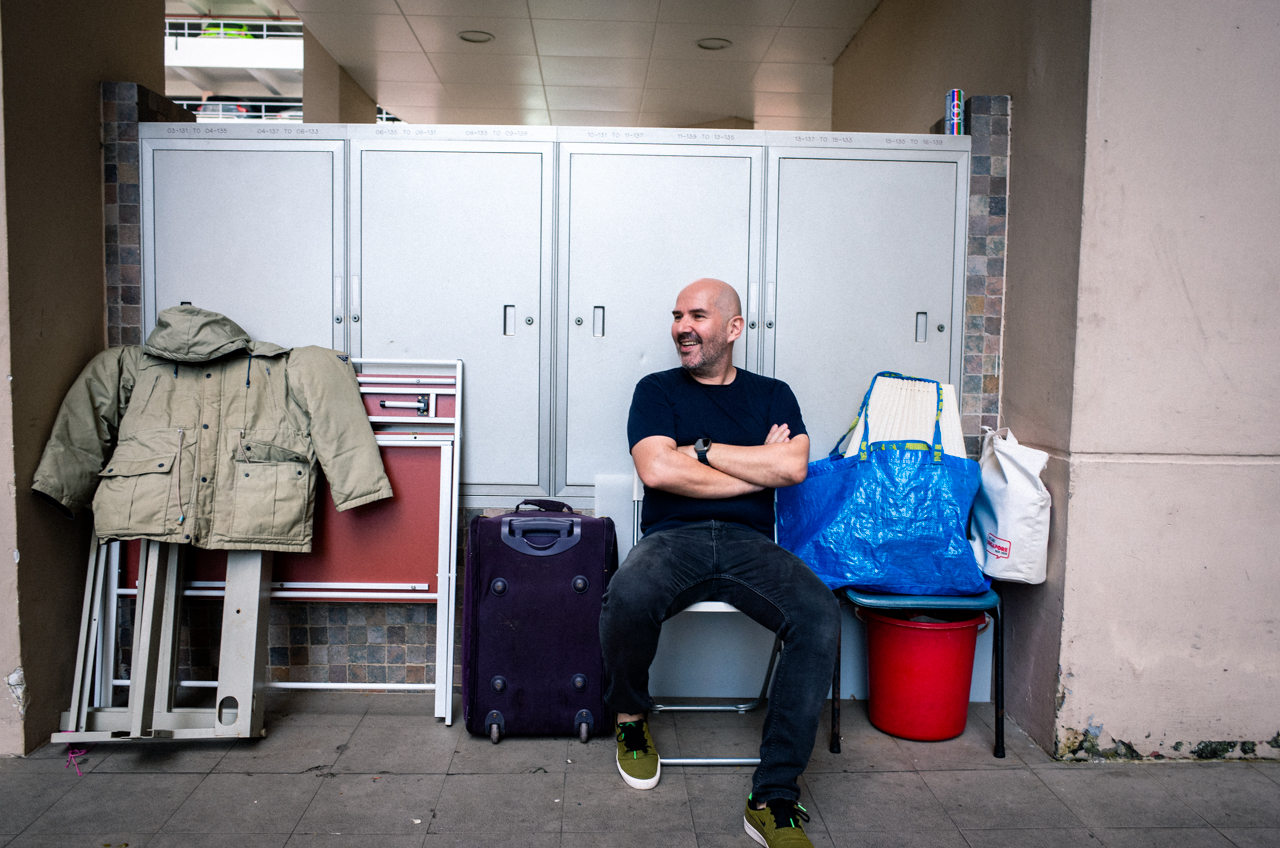All images by Zachary Tang unless otherwise stated.
In 1970, a month before Christmas, the now-immortal English rock band, Led Zeppelin, released a single that would rank amongst their greatest.
Written by band members Jimmy Page and Robert Plant, the lyrics to ‘Immigrant Song’ are whimsical and descriptively literal, an anthem to the band’s recent trip to the Icelandic capital of Reykjavík.
With a titanic riff echoing throughout, the song’s famous opening lines go: ‘We come from the land of the ice and snow, from the midnight sun where the hot springs flow.’
What could pass off as an amateur attempt at slam poetry was, in fact, a daily wardrobe guide for Haraldur Már Unnarsson, or Halli, growing up.
“Iceland is beautiful but cold—not as cold as, say, Greenland, Canada or even some parts of China, but cold nonetheless”, he says with folded arms as the mild breeze from an AC unit gently sweeps over us both.
At two on a Monday afternoon, the cafe we’re in along Tyrwhitt Road is quiet and comfortable, with a smidgen of Christmas decor scattered throughout. Dressed in a tartan button-up and jeans, Halli had cycled over from his Jalan Besar flat on a bike he salvaged and then refurbished from his neighbourhood karang guni.
Halli, pronounced ‘Hall-iq’ or “like Halle Berry but with a muted ‘e’ sound”, as he cheekily puts it, easily qualifies amongst the most fascinating individuals I’ve met.
An industrial designer by trade, Halli is also a videographer when the assignment demands, resulting in quite an intriguing resume, having worked on projects such as the 2008 Beijing Olympics.
Residing in different cities around the world, he arrived here 13 years ago to live with his wife. He is well-read, robotically goofy and a brilliant conversationalist. So imagine my amusement when Christmas was the subject that conjured up his biggest emotional reaction.
“Christmas is my least favourite part of any given year. I never really enjoyed anything about it, probably until living here, where it’s not overwhelming and, in a certain way, actually enjoyable.” Heavy words from an Icelandic man whose nation celebrates the holiday for a whopping 26 days.
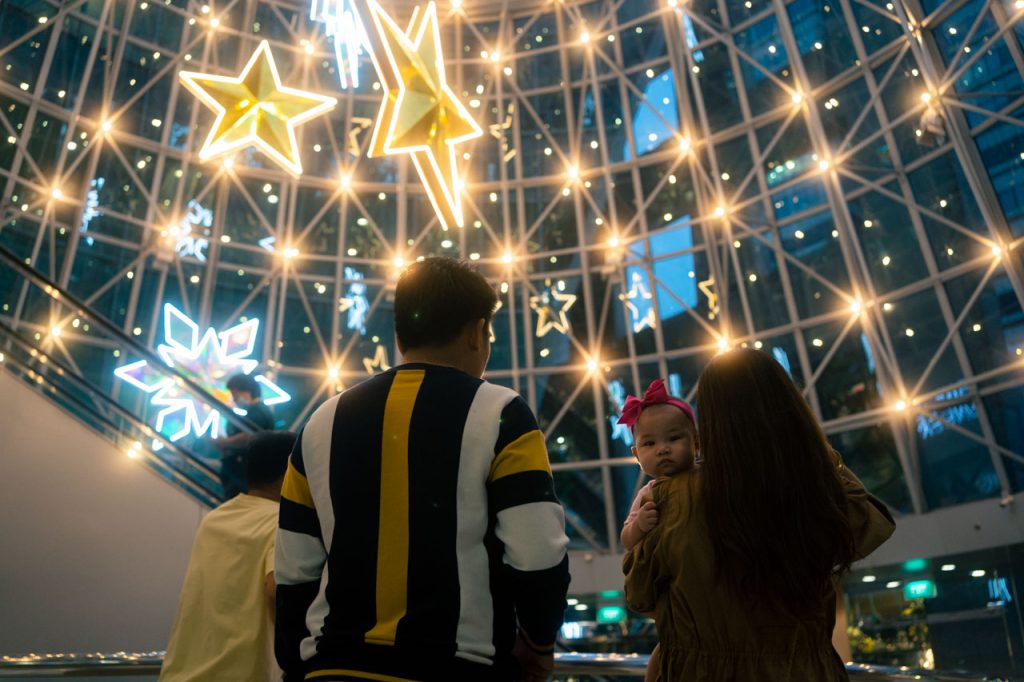
Christmas in Singapore
For the entirety of his residence in Singapore, Christmas day has been pleasantly idiosyncratic and routine for Halli.
A relaxing bicycle tour looping the island, a quick dip at Jalan Besar Swimming Complex, or maybe a casual dinner with friends. No gift exchanges, no Christmas meals—and don’t even think about putting up a Christmas tree.
“I really enjoy the fact that life just kinda goes on here. People carry on their lives as normal, go to work, walk around in their flip flops, exercise, go to hawker centres,” says Halli with raised eyebrows and an unworried expression.
Without context, his statement seems odd and unrelatable; Christmas in Singapore, it seems, is lighthearted and unburdened by tense situations or Hobson’s choice scenarios.
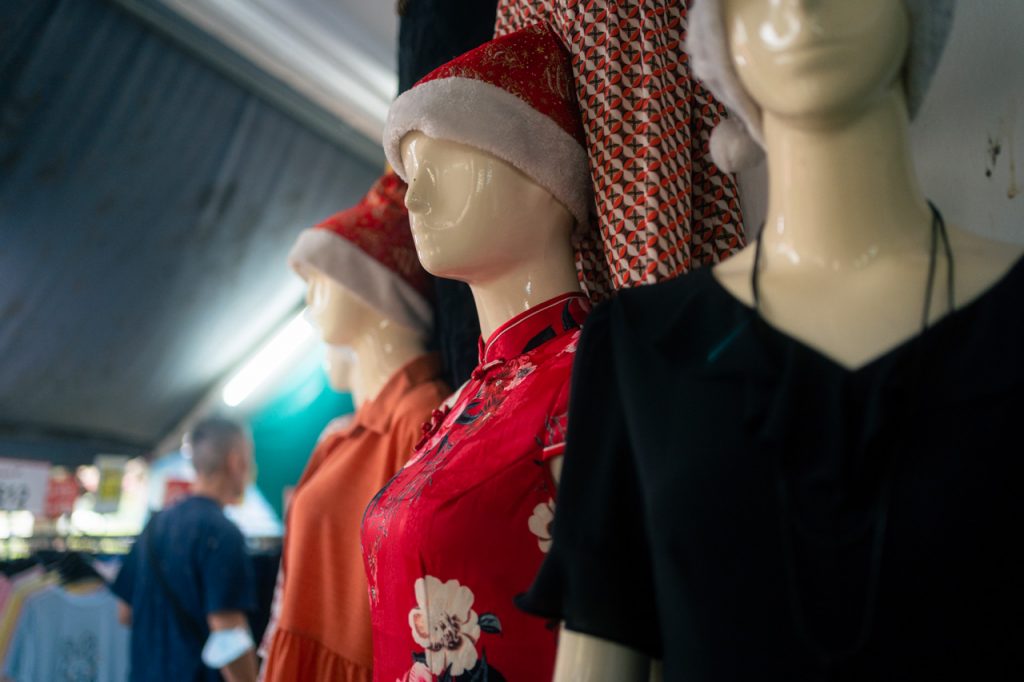
Halli’s reality of Christmas growing up compared to the holiday he experiences in Singapore today, however, couldn’t be more different.
In Iceland, Christmas is one of, if not the most significant holiday, with the entire island hitting a ghost-town pause at 6 PM on Christmas Eve.
“The church bells go off, and people start eating. Businesses in Iceland close for a couple of days, nothing’s open—they’re not allowed to by law,” Halli informs me. “It’s only recently that restaurants and cafes have been allowed to operate during Christmas for tourism reasons.”
As a Singaporean, Halli’s painting of Christmas is unfamiliar; a foreign setting with a subject I share little to no acquaintance with.
“In Iceland, Christmas is everywhere, and if you dislike it, you’re basically like the antichrist,” Halli says with a scratch of his beard.
As he unpacks his emotions on the holiday season for many years, the stress is palpable, reminiscent of the distinctive feeling of the familiar made uncomfortable.
“I think the expectations versus the reality I got for Christmas very early on especially was different, and subsequent Christmases never improved. I also found out Santa wasn’t real from a very young age, which kinda ruined the magic,” Halli adds.
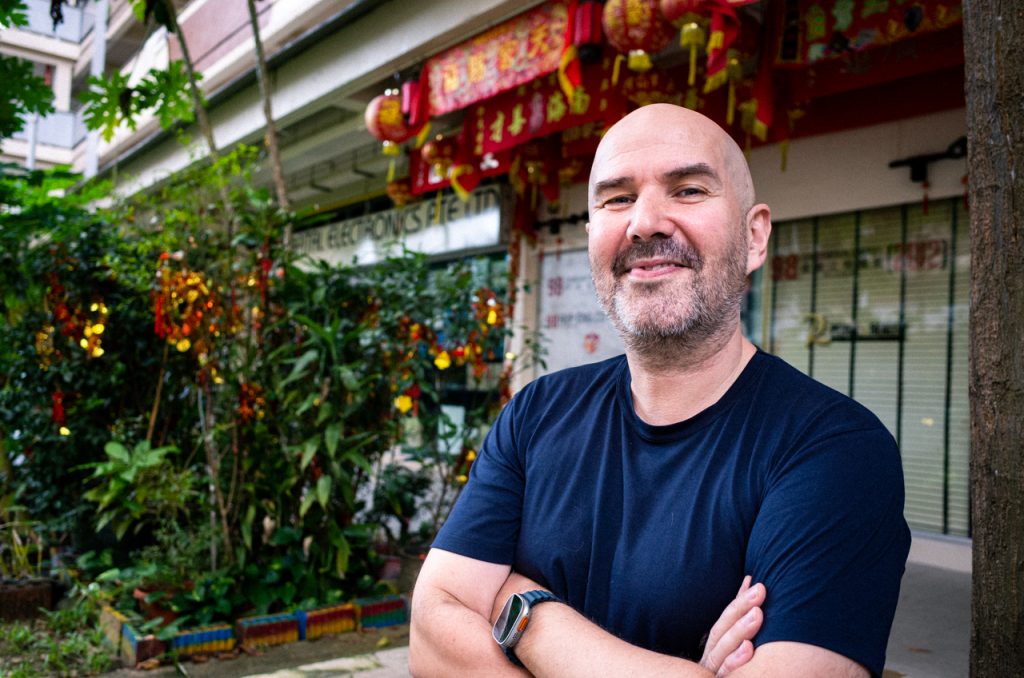
A Broken Nose and an Empty Wallet
It’s 1988, in a house placed inconveniently away from the city centre in freezing Montreal, Canada. Halli remembers this year distinctively as the worst Christmas of his life.
Halli was 16 then—an athlete who did relatively well at school. He was in his first serious relationship and was thrilled to be on exchange in The Great White North. He’s been wanting to leave Iceland since he was 13.
That same year, Halli would start balding, lose weight due to a lack of food and get cheated on by his then-girlfriend. To cruelly top it off, he became a child of divorce.
“Ya, that Christmas was terrible. My Canadian host family weren’t friendly or accommodating either; they treated me like a stranger living in their house. I wasn’t eating enough, so I was losing muscle and hair, and my complexion was terrible, which affects you at that age,” Halli mutters almost imperceptibly.
“And my then-girlfriend cheated on me shortly after I left Iceland for my exchange. She was just awful and emotionally manipulative. I got a stupid tattoo to try and impress her a little. My mom was horrified when she found out!” laughs Halli as he scratches his beard again, playfully this time.
As he continued, the mood turned sombre. “I remember it being so cold in Canada, away from everything. When I finally returned to Iceland after six months, my parents picked me up from the airport, and that’s when they told me they got a divorce.” Halli’s parents had also moved to separate apartments, putting down the family cats in the process.
Fresh from a dreadful exchange overseas, the 16-year-old was forced to adapt to circumstances and carry on without breaking a stride. “So yeah, 1988 was not a good year for me.”
Eight years later, at 24, Halli was named student of the year for semesters 1996 and 1997, studying industrial design at the Design Academy Eindhoven, then called the Academie voor Industriële Vormgeving Eindhoven in Holland.
“I was athletic growing up. I was a national gymnast, so naturally, I was competitive even then,” he explained when I teased him for being such a stellar student.
“But Christmas that year was terrible as well. You see, I made sure to pay for university completely out of my pocket,” he continued. “I was working and studying the entire time, and the way it worked at the time in Holland was you would only get student loans based on your results.”
The moment Halli failed a single subject, he had to repeat the semester, and he wouldn’t get a loan. “So you can imagine the kind of stress I was under.”
To make things worse, Halli was still expected to make it home yearly for Christmas when air ticket prices were soaring and unkind to student wallets.
“I still had to fly back to Iceland for Christmas when I was studying, and I was just so, so broke. I barely had enough for myself, yet there was no escaping it.” That December 1997, Halli flew home for Christmas, hesitant and unhappy.
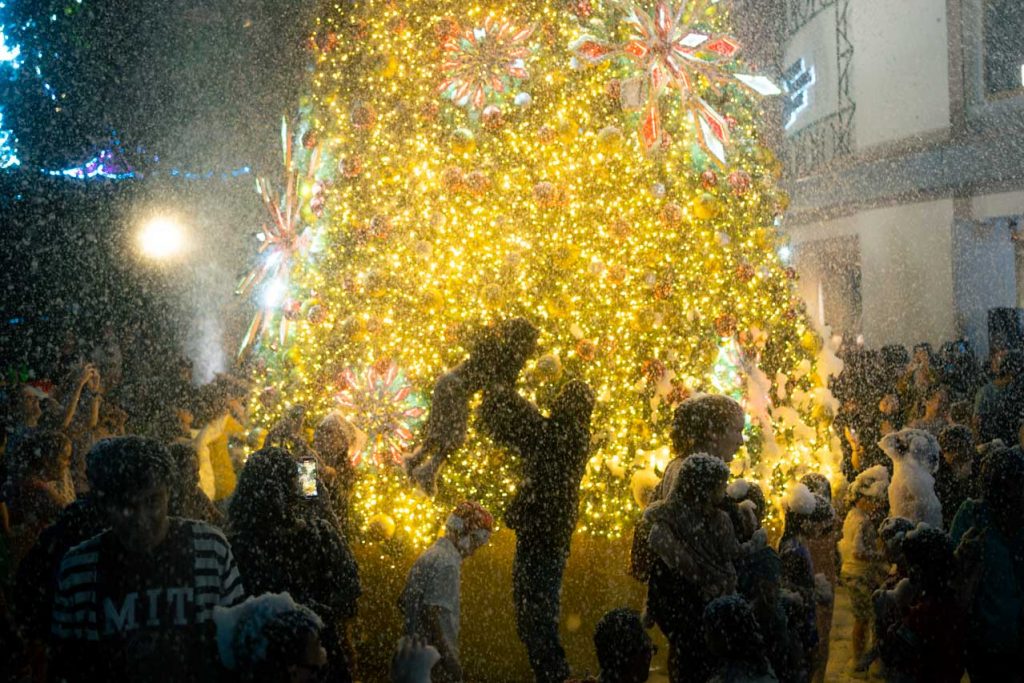
As if he were not already under immense mental and financial pressure, Halli’s physical state would also take a literal beating that Christmas.
“I was walking around town with my then(different)- girlfriend when I noticed something going on. It was a bunch of 15-year-old kids beating someone up, so I got involved and got them to stop,” he says matter-of-factly.
“Then I got beat up. It was awful—if it were two or three of them, I might’ve been able to fend them off, but there were eight of them, so I got beat up really bad. My then-girlfriend got really traumatised.”
That incident left him with ‘cauliflower ears’, 20 holes in the head, and a permanently altered nose.
The Perfect Gift
Despite happening decades ago now, the two incidents left a deep, negative impression on Halli and formed his emotions associated with Christmas.
Still, if that were all to his arbitrary reasoning behind disliking Christmas, they would be sufficient to anyone seeking to understand his aversion to the holiday. But the twin affairs are the furniture, not the house, in this story.
Halli grew up with seven siblings. His mother looked after home affairs while his father was away at sea as a sailor for up to six months at a time—a common occupation for Icelandic men then.
“He was often away during the holiday season, and whenever he was back, he was often drunk or arguing with my mother. He was a good man, hardworking, well-liked and kind of dreamy.”
Halli’s father would often share his dreams and ambitions with Halli. “He never acted on them. He just wasn’t given a chance to,” he continues with a sad smile. “Time at sea took him away from his family in more ways than one.”
Halli’s mother grew up loving the holiday herself and, as such, set high expectations when it came to celebrating it.
Whenever Christmas rolled around, however, Halli’s memories of the festive occasion over the years would be marked by accumulating melancholy and anxiety.
From a societal perspective, Iceland’s placing of importance on Christmas is just and deserving. Aside from the weight of cultural lore linking country and festival, the small island nation, both gifted and plagued with exceedingly skilled, pragmatic and independent inhabitants, would sensibly pull out all the stops on the longest holiday of the year.
“Christmas is very big in Iceland. People become totally beside themselves buying presents, putting themselves into debt. And then there’s the stress that comes with it, the cleaning of houses, the traditions, there’s no escaping it—it’s everywhere.”
“This period was just a melting pot of unhappy parents and excessive drinking that would often break out in physical fights. When you go through this a few times, you classically condition yourself to associate all this unnecessary stress and unhappiness with Christmas.”
Not the Big Three
In Singapore, Christmas is among the most important days for Catholics and Christians.
Christmas Eve is busy with midnight mass, followed by morning church service the day after. Conversely, for irreligious Singaporeans, Christmas is a fun, light holiday with get-togethers and gift exchanges, usually around a portable tree made of thin strips of PVC plastic.
The holiday simply carries little cultural weight on Singaporean soil due to the demographic makeup of its inhabitants.
This is unlike Chinese New Year, Hari Raya, and Deepavali, where an accompanying tenseness and pressure can be ironically observed as families aim to hit all the marks of expectation, decoration and interaction, Christmas, for the most part, is free of this.
The holiday is mainly secular in Singapore, with island-wide sales and special dining packages being the most significant cultural link to the Singaporean identity.
Even Christmas music is only audible at supermarkets for a maximum of three weeks, save for establishments like Cold Storage, before the loud bustle of Chinese New Year music takes over.
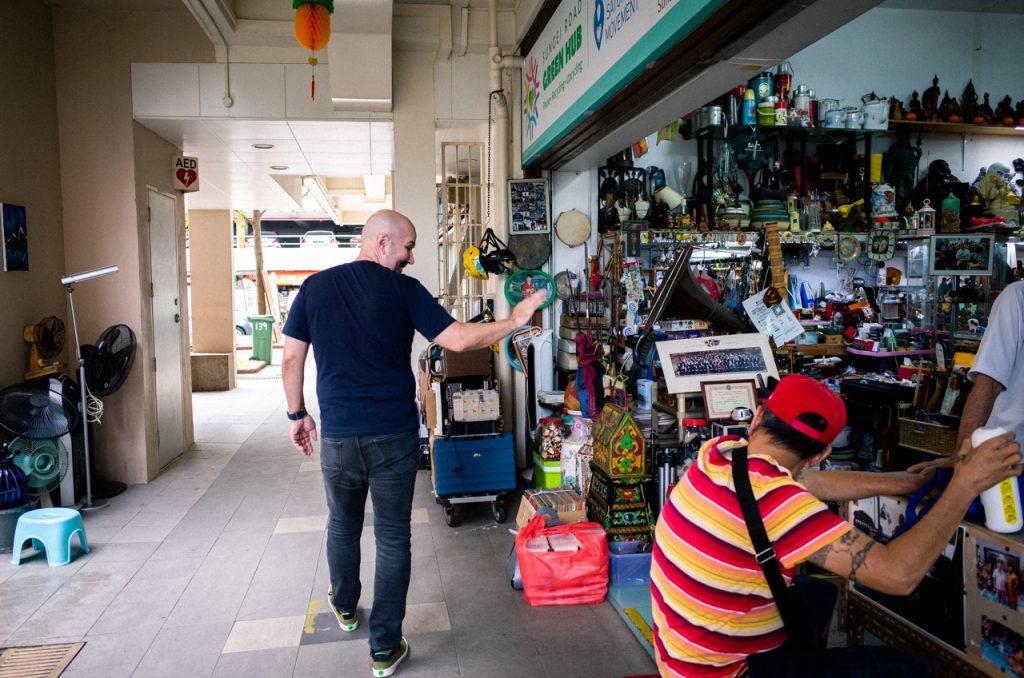
Managing Festive Emotional Trauma for Dummies
Nevertheless, Halli’s association of miserable feelings with a holiday is not a completely foreign occurrence. The expectation of festive occasions is often unrealistic in their forced situations of cheer—regardless of external factors or country of origin.
There is no figurative ‘carrot on a stick’ of happiness for the attendees of a holiday or a festival; people turn up out of a promise to culture or religion.
“It’s a terrible thought that people must go through these periods hating it every time. But you need to make it better for yourself,” Halli adds.
His method of dealing with the emotional trauma experienced during Christmas has been to go about the day, as usual, forgoing any holiday traditions he was brought up under.
“Just do your own thing as long as it makes you happy,” he says. “I don’t really have any remedy or advice for people that hate or dislike special festivals,” Halli shares when I ask if he has any advice for anyone in the same boat as him.
Another solution for Halli is to be away, although he admits it could be looked at as some kind of an escape. “I think we need to make it bearable for ourselves, if not enjoyable at the very least.”
Not Christmas-ey Enough, and That’s Perfect
In a few days, I know what Halli will be up to. It will be another Sunday for him; bicycle ride in the day, swimming in the evening, quality time with his wife, and playing with his cats at night.
There will not be a hint of Christmas decoration in his house nor a whiff of a holiday dish in his home. “I think Christmas and all the decoration that comes with it is so ugly and tacky that I can’t support it. I think Christmas is visually one of the ugliest festivals around,” he says seriously. Hardcore Christmas fans in Singapore would recoil in horror.
Like Halli, locals often flock overseas during Christmas to seek a ‘Christmasey atmosphere’ elsewhere, citing a lack thereof here.
In a Wired September issue of 1993, American writer William Gibson penned a story of his observations upon his visit to our island nation, underlining Singapore’s overly clean and conformist nature and lack of creativity or authenticity.
And although Gibson’s article is now approaching 30 years in antiquity, there are definite fragments of patented truths that persist.

Owing to Singapore’s reputation as a global hub for all things commerce, certain facets of our nation have adapted to international practices, including holidays.
Halloween decorations and promotions go up in most establishments island-wide in October when it shares no historical or cultural connection to our country or its people; it’s an imported holiday air-freighted via globalisation. The same goes for Thanksgiving and, to an extent, Easter.
Halli’s experience and feelings associated with Christmas are a shared reflection of many Singaporeans’ own dealings during any festival of cultural significance. Despite the supposed holiday cheer, everyone needs a break from familial purgatory before descending back into the chaos of the holiday season.
The term ‘escapism’ is used by Halli to describe his method of dealing with Christmas. Whilst not entirely untrue, I think he’s absolutely spot-on in his approach.
To Halli, I say, run over Christmas with your bicycle. Anyone would do the same.

